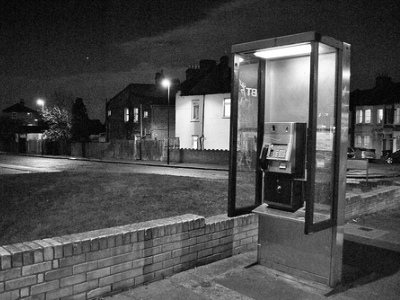
Running away from care is often a cry for help, according to young people interviewed by the children’s rights director.
Almost 100 children, many of whom had previously run away from care, shared their views. They said social workers and other care workers need to understand each child’s reason for running away before they can help them or change their behaviour.
The reasons for running away varied but were usually because children wanted their placement changed, needed “time out” from their current situation, wanted to see someone they were not allowed to or faced something in their life they could not cope with. Others ran away for ‘the thrill of it’ or ‘to find somewhere happy’.
Raising awareness of danger
Many of those who had run away in the past admitted that after the first thrill of “being free” they worried about where they were going to sleep, what they were going to eat and whether they would be safe. They agreed that if more children knew about the dangers of running away it might stop them doing so.
Some, however, said it was so important to escape that the risks did not matter to them. These are the children who are usually running away from problems and are more likely to simply jump on a train and see where they end up, young people claimed.
The report found most children intended to return home. It also suggested that social workers and foster parents should ensure children always have access to a mobile phone, and an awareness of people they can call on or safe places they can go if they do run away.
List of child’s family and friends
Ensuring staff have a list of the friends and family members a child might run to was also useful, the report found. Equally important was how a child was dealt with after running away. The report recommended that staff and workers talk to children about why they ran away, but not in front of other children or other staff.
“We heard that staff often don’t understand why a child has run away, and so make their own assumptions about the reasons,” the authors stated.
Many children and young people also said that often children were simply late but staff would claim they had run away. A better method would be to use a system of increasing fines if children were late, the report concluded.
‘Very important’ report
Children’s minister Edward Timpson called the report “very important”. “We have been very concerned that some local authorities and care homes are letting down children by failing to act as a proper ‘parent’,” he said.
He continued: “This is a very important report – which makes clear that carers and social workers need to listen and address children’s concerns as early as possible, before it reaches the crisis point of them feeling they have no option but to run away.
”We have launched a major overhaul of the residential care system to protect children – in particular to address issues around local agencies not having a grip on how many are going missing from care nor for proper alarms to be raised and action taken when teenagers run away multiple times. Today’s report will feed into this work.”
Related articles
Government pledges to improve missing children data


 Assistive technology and dementia: practice tips
Assistive technology and dementia: practice tips  A trauma-informed approach to social work: practice tips
A trauma-informed approach to social work: practice tips 




 Find out how to develop your emotional resilience with our free downloadable guide
Find out how to develop your emotional resilience with our free downloadable guide  Develop your social work career with Community Care’s Careers and Training Guide
Develop your social work career with Community Care’s Careers and Training Guide  ‘Dear Sajid Javid: please end the inappropriate detention of autistic people and those with learning disabilities’
‘Dear Sajid Javid: please end the inappropriate detention of autistic people and those with learning disabilities’ Ofsted calls for power to scrutinise children’s home groups
Ofsted calls for power to scrutinise children’s home groups Seven in eight commissioners paying below ‘minimum rate for home care’
Seven in eight commissioners paying below ‘minimum rate for home care’
 Facebook
Facebook X
X LinkedIn
LinkedIn Instagram
Instagram
Comments are closed.